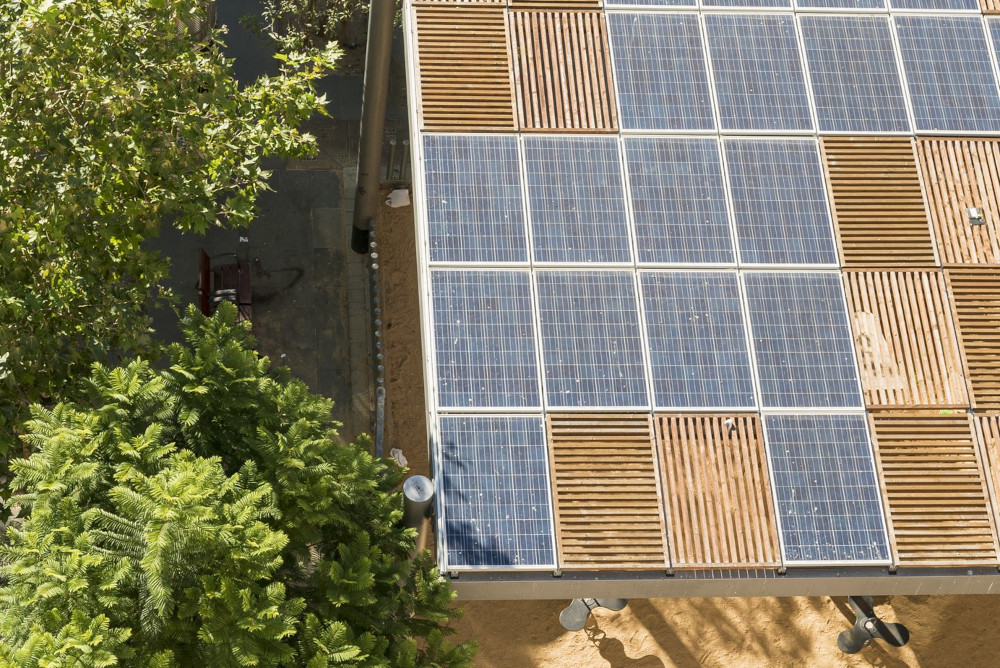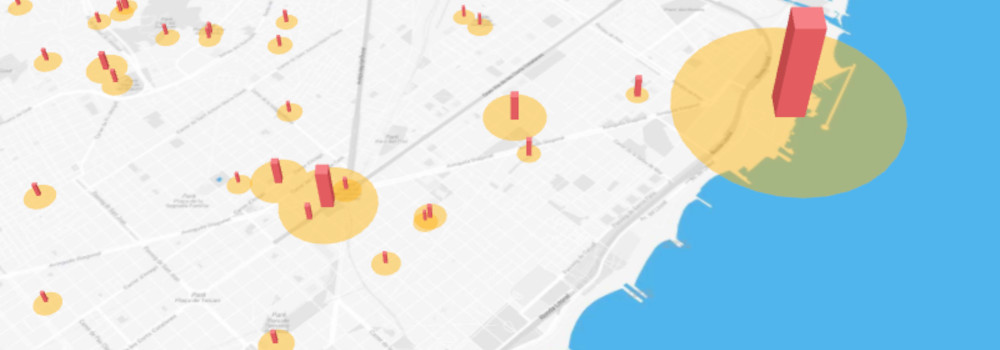The City Council is generating
Towards the energy transition
Barcelona City Council is reaffirming its commitment to the energy transition to work towards a more sustainable city with greater energy sovereignty. As stated in the municipal Climate Plan, new criteria are being set for energy generation in the initiatives promoted by the local government with the goal of guaranteeing a fairer, more democratic energy model based on renewable sources.
The current Climate Plan serves as a roadmap and defines the priority areas of action to promote sustainability and the energy transition, focused on the following:
- Promoting a culture of sustainability.
- Fostering a sustainable public electric mobility model.
- Adapting the city to high temperatures to ensure climate justice with nobody excluded.
- Focusing on renewable energy and lowering energy consumption.
Tripling municipal photovoltaic capacity
Barcelona has achieved the goal of tripling municipal photovoltaic capacity. The city has been tripling its installed capacity since 2023, with more than 11,000 kWp of active photovoltaic power. This amount is expected to multiply five-fold in 2027, with 381 photovoltaic installations and upwards of 19,192 kWp in capacity, enough to cover the annual consumption of more than 10,000 households and prevent emissions of more than 9,600 tonnes of CO₂.
This progress is a decisive step towards cleaner and more accessible energy production, which contributes to lowering polluting emissions and reinforces local energy sovereignty.
The new installations have been rolled out in different municipal spaces, including pergolas, government buildings, civic centres and mobility infrastructures, in a model that takes advantage of existing spaces and infrastructures to generate renewable energy without comprising their original functionality.
How will this energy objective be reached?
Self-consumption and shared energy generation policies are key strategies in Barcelona's energy transition. Barcelona City Council helps city residents take advantage of the renewable energy that the city generates through a shared self-consumption system.
This is a project that enables the electrical power generated in municipal photovoltaic installations to be shared with different households and retailers. Thus, users can purchase 500-Wp solar energy “packages” with a maximum of 2,000 Wp per participant, which may lead to up to 20% savings on the electricity bill, equivalent to between 100 and 150 euros per person.
Two examples of this energy self-consumption system are the pergolas installed on Ronda de Dalt and in Plaça d’Alfonso Comín. These infrastructures generate solar energy (84,463 kWh/year) which is distributed among neighbourhood retailers and households, some of which are in a situation of vulnerability.
This project not only contributes to lowering the participants’ energy spending but also promotes a fairer and more sustainable energy model.
Map of energy generation in municipal buildings
In this map you can find where these generation elements are located, how much energy they generate and the savings in energy consumption and CO2 emissions they entail.
Democratising energy through crowdlending
Crowdlending is another funding formula that enhances this sense of energy democracy, as it allows city residents to directly participate in renewable energy and sustainability projects and complements the areas of action in the Climate Plan to build a fairer and more sustainable and resilient city. One example is the initiative at the Convent de Sant Agustí Civic Centre, in which city residents have participated in funding a photovoltaic installation to promote the use of renewable energy in the community.


